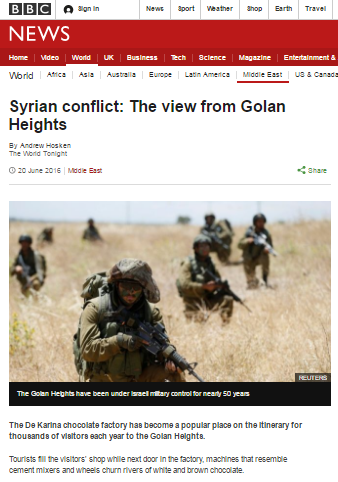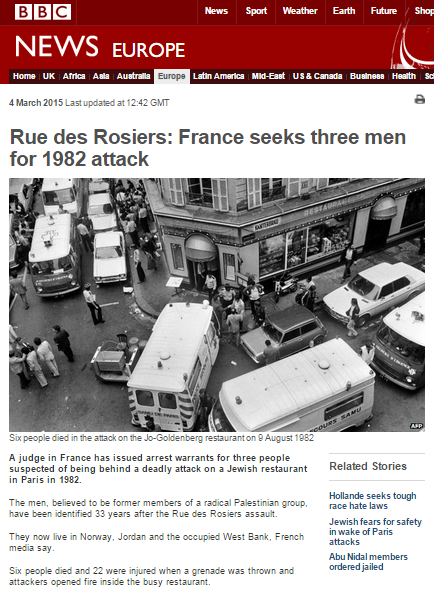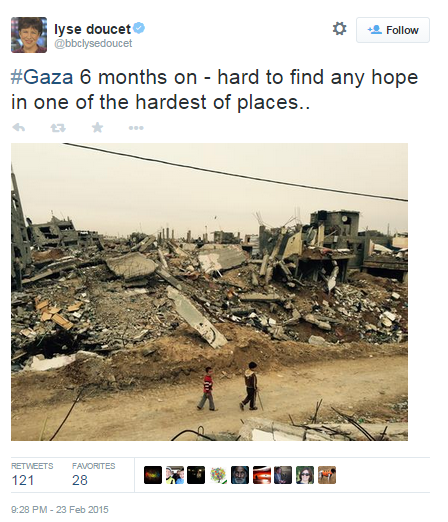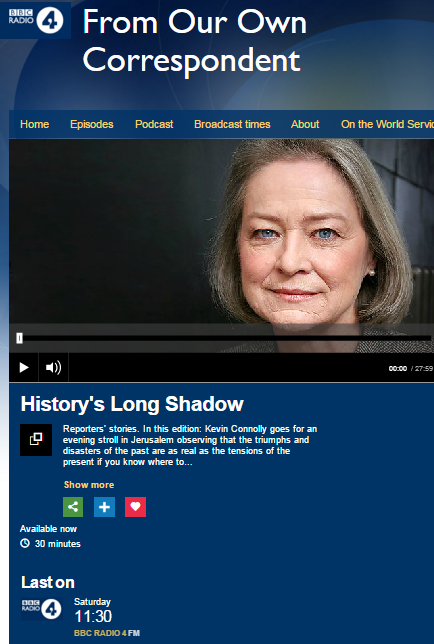Hot on the heels of his audio report from the Golan Heights which was broadcast on June 15th on BBC Radio 4, Andrew Hosken produced a written article on the same subject for the BBC News website’s Middle East page’s ‘Features’ section on June 20th – “Syrian conflict: The view from Golan Heights” – which suffers from many of the same factual inaccuracies.
Hosken’s report opens with a description of his visit to a chocolate factory. Seeing as that factory is located in Kibbutz Ein Zivan, it is reasonable to assume that he would have noticed the nearby border fence and, just beyond that, the town of Quneitra.
When the Six Day War ended with the ceasefire of June 10th 1967, Quneitra was left under Israeli control and remained so until the Yom Kippur War in 1973. Under the terms of the 1974 agreement between Israel and Syria, Israel evacuated territory it had captured during the Yom Kippur war as well as some 60 square kilometers in the Quneitra area, captured in 1967. Following the 1974 agreement, ITN reported that “Syrian President Hafez Al-Assad personally hoisted the Syrian flag over the ruined town of Kuneitra [Quneitra] on Wednesday (June 26) to mark the end of seven years of Israeli occupation”.
Nevertheless, readers of this report by Hosken were again told that the Israeli Golan is 54.5 square miles larger than is actually the case and that the border is “the 1967 ceasefire line” rather than the 1974 line.
“Territory encompassing most of the Golan Heights, approximately 500 square miles, was captured by Israel in the last stages of the so-called Six Day War of 1967.
Israel effectively annexed the land in December 1981 when it officially extended Israeli law and government to the Golan.
The “border” between Israeli-occupied land and Syria is now the 1967 ceasefire line that is enforced by the United Nations.”
The mandate of the UNDOF forces in the area is to “maintain” and “supervise” – rather than ‘enforce’ – the 1974 agreement.
The article portrays Hizballah as “Islamist militants” rather than an international terror organization.
“Assad has been heavily supported by Iran and, in particular, the Islamist militants funded and backed by Tehran, Hezbollah. Hezbollah has vowed to destroy the state of Israel.”
In common with the audio report, the population of the Golan Heights is inaccurately portrayed as being over a third smaller than is the case and the location of the Druze residents of the Golan is described in confusing terms.
“Of the 30,000 or so people in Israel-occupied Golan, fewer than half – about 14,000 – are Jews. The rest are mainly Druze Arabs, who straddle the 1967 ceasefire line.”
Visiting Moshav Yonatan, Hosken tells readers that:
“The village lies in south-eastern Golan just four miles from the ceasefire line. On the other side, so-called Islamic State is believed to be fighting Assad’s Hezbollah-backed forces.”
In fact, Yonatan is located in the central Golan and the ISIS affiliated groups (which have of late been fighting other rebel groups more than Assad and his allies) are positioned further to the south.
Despite the existence of documentation, Hosken once again tells BBC audiences that:
“…Israel believes a small number of Syrian Druze are being used in sporadic attacks against Israelis in the Golan Heights by Hezbollah” [emphasis added]
As noted here previously, the topic of Hizballah and Iranian activity on the Syrian side of the Golan Heights has been under-reported by the BBC in the past and so it is good to see a journalist finally giving some air-time and column space to that issue. It is however a pity that such long overdue reporting is marred by very basic factual inaccuracies.
Related Articles:
BBC World Service reduces Golan Heights population by a third
More soft focus BBC presentation of Hizballah
Patchy BBC reporting on Hizballah attacks in northern Israel




